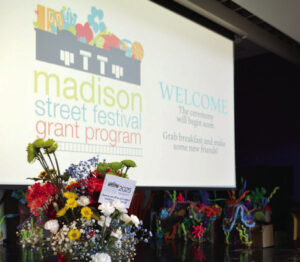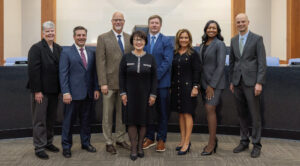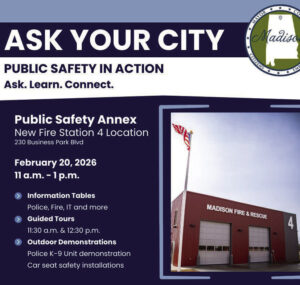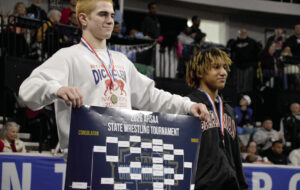Choctaw gambling moving closer
Some black leaders are calling Bob Riley an “economic racist” for his attack on jobs at legal gaming facilities in two of Alabama’s poorest and blackest counties. I wouldn’t go so far as to call Riley a racist but I would say that his actions are adding greatly to the economic depression that looks Alabama squarely in the face.
I use the words “legal facilities” because no court, state or federal, has declared the electronic bingo machines in Greene or Macon County illegal. In fact the machines at Greentrack in Greene County and VictoryLand in Macon County have been tested by one of the foremost gaming machine experts in the nation and deemed to meet the six standards established for electronic bingo in our state by the Alabama Supreme Court.
Nonetheless, as there seems to be no end in sight for the economic disaster on the coast and while state tax revenues plummet, Mr. Riley continues his march to destroy over 4,000 jobs in these and other counties. Last week the governor raided Greentrack and seized over 900 bingo machines, all which I am told, meet the State Supreme Court test and are authorized by a constitutional amendment which clearly permits electronic bingo.
Meanwhile the Tribal Council of the Mississippi Band of Choctaws has approved the construction of an $18 million casino on the Bogue Homa Indian reservation just off Interstate 59 at Sandersville, Miss., a mere 30 miles from the Alabama border.
The plans call for a 27,000 square foot building, 700 slot machines and a restaurant. The new casino will be the second expansion of gambling for the Choctaws in Mississippi. They already operate two adjacent casinos at Philadelphia, the Silver Star and Golden Moon and like the Indian casino operations in Alabama, pay no taxes.
Our neighboring states cash in
Thirty non-Indian casinos are licensed to operate in Mississippi. They comprise a $2.5 billion-a-year industry that employs over 25,000, pays nearly $900 million in wages and produces $300 million in annual tax revenue to the state according to the American Gaming Association. Those tax dollars go for housing, education, transportation, health care services, youth counseling programs and local public safety programs.
In Louisiana casinos are a $3 billion-a-year industry and employ over 20,000 people, paying over $700 million in wages and $600 million in tax revenue to the state.
In Florida the privately owned racetrack casinos produced $108 million in tax revenue to the state in 2009 and employed 2,156 Floridians. Florida also has a lottery which brought $1.28 billion in tax revenue for schools in 2009 and has provided over $21 billion to education since its inception.
In Georgia, the state lottery paid nearly a billion in tax revenue for education last year and has provided over 11 billion for education since its creation.
In Tennessee, the lottery earned nearly $300 million for education last year and has paid $1.7 billion to scholarships and schools since it was approved a few years ago. A total of 43 states have some type of lottery.
Alabama did earn just over $3 million in revenue from the state’s two Pari-Mutual racetracks at VictoryLand and the Birmingham Race Course in 2007, but the governor has virtually closed off that tax revenue with his attempts to end the bingo games at VictoryLand which would likely cause the entire facility to close.
The runoff next Tuesday
All eyes will be on the Republican runoff election Tuesday as Bradley Byrne and Robert Bentley vie for the GOP nomination for governor, the winner to face Democrat Ron Sparks in November. How do the candidates stand on the gaming issue?
Sparks’ position from the beginning has been in favor of a lottery for education and to ensure that the state regulates and adequately taxes all legal gambling. He would also favor allowing the people of Alabama to decide the gambling issue at the polls and says his first act as governor would be to fire John Tyson Jr., Riley’s Anti-Gambling Task Force commander.
Byrne has taken the Riley approach of continuing raids and intimidation at the existing bingo venues. At a recent debate he was asked if he planned to continue Riley’s Task Force on gambling and how he felt about gambling.
He said he would continue the task force and rejected the idea of letting the people vote. “Saying that you want a vote on the issue is saying you’re for gambling,” he said.
Bentley said he is personally against gambling and wants to rid the state of it, but said he favored a “clean” up-or-down vote on the issue that would either allow gambling to be regulated if it passed and eliminate all types of gambling if the vote failed.
Bob Martin is editor and publisher of The Montgomery Independent. Email him at: bob@montgomeryindependent.com
















